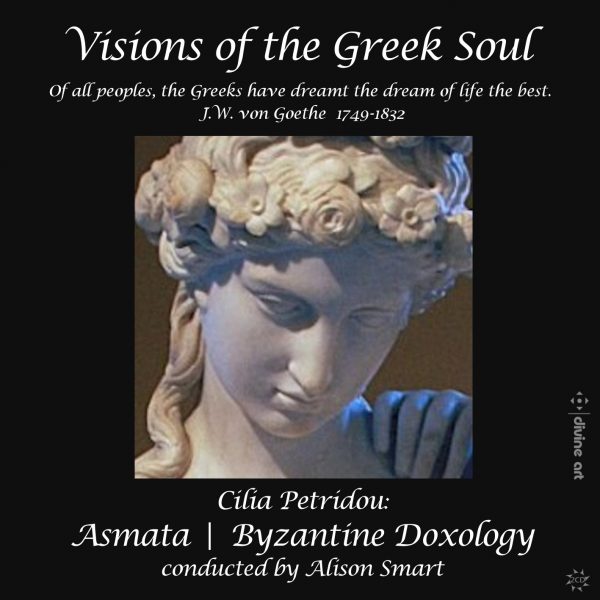Infodad
Cilia Petridou (born 1944) relates to Greece both personally and as a source of musical material, as a new two-CD Divine Art release clearly shows. Greek Orthodox liturgical texts form the basis of Byzantine Doxology, a very extended setting (lasting almost an hour) of sacred material whose general elements (such as Hosanna in the Highest, Peace to All and Rest the Souls) will be familiar to many listeners even if the specifics of the Greek words will not. The setting uses a small vocal ensemble – two sopranos, mezzo-soprano, tenor and two basses – that Petridou employs to produce considerable purity of sound in music that is essentially tonal but harmonically more modern than many traditional settings of religious texts. The vocal writing is skillful, although the limited number of voices means that the material – which is straightforward in meaning – tends after a while to drag a bit. There is greater variety in the 15 songs, split between two soprano voices and based on more-modern poetry, that Petridou collectively calls Asmata. The songs’ length varies quite a bit, with the first lasting less than a minute and the last more than nine minutes. The words’ sources are quite varied and not 100% by Greek poets: although six are by Dimitris Libertis (1866-1937), two by Kostis Palamas (1859-1943), two by Alexander Pallis (1851-1935), and one by Nikos Kambas (1857-1932), there are also three traditional folk poems (Lullaby, The Nun, and Red Lips); and one song, The soul selects her own society, uses words by Emily Dickinson. The use of an electric piano for the last and longest song, Sunset, produces a somewhat otherworldly effect, but most of the settings are rather straightforward, with the piano generally remaining firmly in the background even as it supports the voice. When the piano is used for mood setting, however, as in Away from You, the result is quite effective. Petridou is clearly comfortable setting the Greek words both in Asmata and in Byzantine Doxology, and the release provides English translations of all the material, so listeners unversed in the Greek language can follow along with Petridou’s evocations.
@divineartrecordingsgroup
Search
Newsletter
A First Inversion Company
Registered Office:
176-178 Pontefract Road, Cudworth, Barnsley S72 8BE
+44 1226 596703
Fort Worth, TX 76110
+1.682.233.4978












